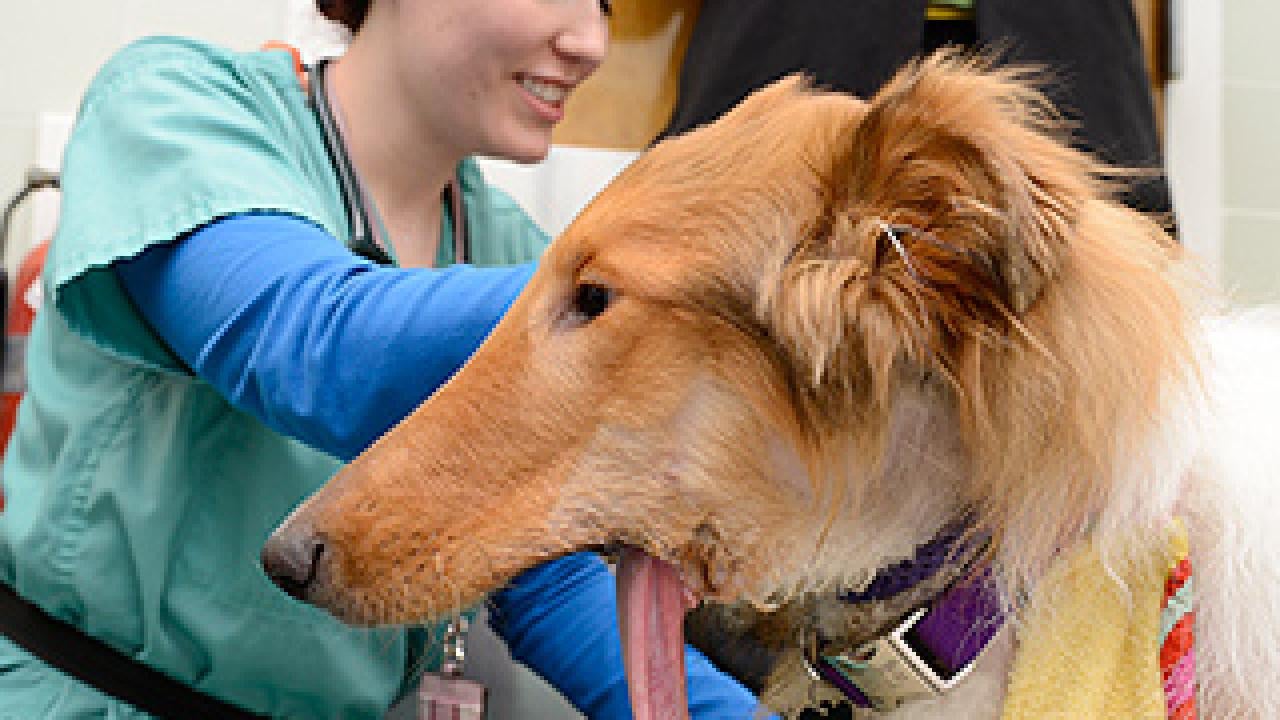A 9-month-old collie, its lower jaw mostly destroyed by a gunshot, arrived Monday at UC Davis’ William R. Pritchard Veterinary Medical Teaching Hospital, delivered by a Kentucky-based animal welfare organization.
After an initial examination, the tan-and-white Lad appeared to be in good general health, veterinarians said, and they expressed hope that they could help improve his quality of life by partially reconstructing his lower jaw, which has only three teeth on one side and two teeth on the other.
Pending results from tests that were initiated the day he arrived, plans will be made for one or more surgical procedures, which would be carried out no sooner than 10 to 14 days from now.
Rebecca Eaves, president and founder of The Arrow Fund, which provides medical treatment for animals that are victims of torture, abuse or neglect, accompanied Lad on his flight from Kentucky. Transport for Lad and Eaves was made possible by Pilots N Paws, which provides emergency rescue and transport flights for animals in need.
Eaves expressed her appreciation for the excellent emergency veterinary medical treatment and follow-up care by Blue Pearl Veterinary Partners in Louisville, Ky., and for the transport group's donated services.
The Arrow Fund learned about Lad and immediately took him into its care on Feb. 10, approximately six days after the shooting. His wound was badly infected, and Lad, weighing only 41 pounds, appeared to be near death, Eaves said.
The details of Lad’s story are available on The Arrow Fund’s website.
About the Veterinary Medical Teaching Hospital
The William R. Pritchard Veterinary Medical Teaching Hospital at the University of California, Davis — a unit of the School of Veterinary Medicine — provides state-of-the-art clinical care while serving as the primary clinical teaching experience for veterinary students and postgraduate veterinarian residents. The VMTH treats more than 45,000 animals a year, ranging from cats and dogs to horses, cows and exotic species. To learn more about the hospital, please go to our website, and follow us on Facebook and Twitter.
Media Resources
Pat Bailey, Research news (emphasis: agricultural and nutritional sciences, and veterinary medicine), 530-219-9640, pjbailey@ucdavis.edu
